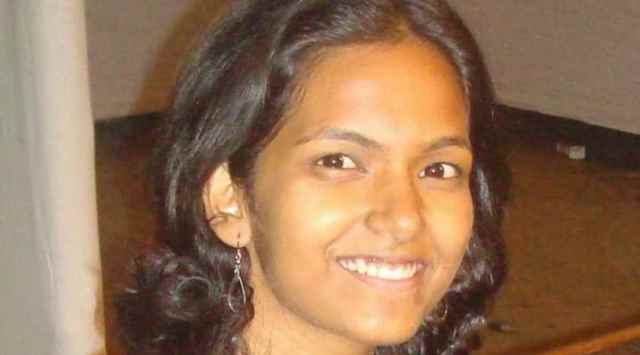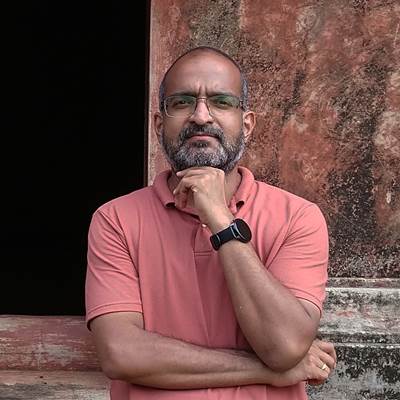Pune crime files: This 21-year-old techie’s murder shocked the city 13 years ago – her death remains a mystery today
While the Hinjewadi police failed to make any breakthrough in the initial probe, the Bombay High Court, deciding on a writ petition filed by Darshana’s brother Ketan Tongare, passed an order in 2012 and handed over the investigation to the CID.
 Darshana Tongare. (File image)
Darshana Tongare. (File image)In July 2010, it was just a few months since 21-year-old Darshana Tongare had joined the office of the Information Technology major IBM in Pune as a fresher trainee software engineer, following her graduation from the reputed College of Engineering in the city.
At 9.15 pm on July 30, 2010, her friend with whom she had been in a relationship from the previous few years, dropped her near her residence in Suvarna Park Society in Bavdhan Khurd in an autorickshaw. Minutes later, she was stabbed from behind near Maratha Mandir Hall close to her residence by an assailant, who remains unidentified even after almost 13 years.
After she was stabbed, Darshana had called up the friend who had dropped her and told him about the attack while in excruciating pain. She was taken to a nearby private hospital by some of the residents and was further referred to a multispeciality hospital in Kothrud, where she died due to internal bleeding, over two hours after the attack.
The case was initially investigated by Hinjewadi police station, which was at the time a part of Pune City jurisdiction, as the separate Pimpri Chinchwad jurisdiction was not in place. Subsequently, the murder was probed by the state Criminal Investigation Department (CID). The two entities worked on several theories, questioned around 350 people, conducted polygraph and brain mapping tests of six persons and looked into thousands of phone records, but could not obtain any concrete lead and a possible closure for her family.
While the Hinjewadi police failed to make any breakthrough in the initial probe, the Bombay High Court, deciding on a writ petition filed by Darshana’s brother Ketan Tongare, passed an order in 2012 and handed over the investigation to the CID.
After the CID took over, Darshana’s family members filed a petition saying the Hinjewadi police had seized Darshana’s cell phone and computer hard disc, and also the cell phone of the friend who dropped her, but these items were not being investigated by the CID. However, in what was described as a major lapse, the CID said that the Hinjewadi police had not given them the seized items in spite of at least half-a-dozen reminders. Hinjewadi police had kept telling the CID for months that they were “searching” for the items. Finally, around July 2013, the Hinjewadi police handed over these seized items and cited administrative reasons for the delay.
Investigations revealed that at the time of the murder, Darshana was using her brother’s mobile because she wanted to listen to music while her own phone was with her brother and could be seized during the probe. The brother’s handset, which she was using, could not be traced. Investigators suspect the murderer may have taken the phone or destroyed it. Neither the probe into seized items could give any concrete leads, nor did the attempts to search for her brother’s handset yield any results.
During their investigation, the Hinjewadi police had recorded statements of 250 people while the CID questioned around 100 others for clues. The family members of Darshana had raised suspicion over some of their relatives. The CID performed polygraph, lie-detector and brain mapping tests of six persons — three of her relatives, the friend who dropped her, the rickshaw driver who had dropped her and the friend and an astrologer from Nashik. The relatives of Darshana had consulted the astrologer for preparing her horoscope without the knowledge of her parents. None of their tests gave investigators any actionable leads.
“All the electronic clues that could be obtained, all the physical leads from the crime scene and from the people related or connected to Darshana were looked into. All the possible theories — the attack being a fallout of a robbery attempt, revenge of some kind and any other personal issue, a case of mistaken identity or the attacker being a homeless, mentally unstable person, were all looked into. But there was no breakthrough. Over the years, the trail went cold. It remains an unsolved case, even till date. It is just one of those cases,” said a senior officer who was a part of the CID probe at one point in time.
Today, Darshana’s father, Devidas Tongare, who is retired from a key defence institution in Pune, says, “I can only say that the CID investigators have done whatever could be done in the case. They looked into all the possible angles but the case remains unsolved even now. We can only hope that it is solved some day.”



































